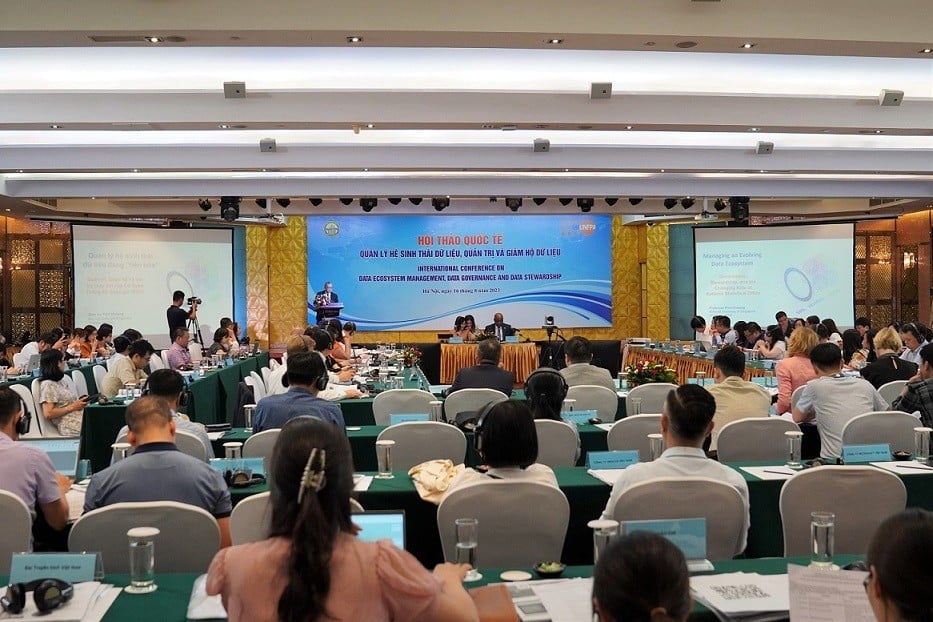 |
| Overview of the International Workshop on Data Ecosystem Management, Governance and Data Custody. (Photo: PH) |
The workshop took place on August 16 in Hanoi, co-chaired by the General Statistics Office of Vietnam and the United Nations Population Fund (UNFPA).
The international workshop was supported by UNFPA with technical and financial support within the framework of the Project: “Supporting Vietnam in developing and using quality population and development data to serve the formulation and monitoring of socio-economic development policies, strategies and plans; and monitoring progress towards achieving the Sustainable Development Goals”.
The project aims to support Vietnam in applying new technologies and communication platforms in collecting, analyzing and disseminating data, ensuring evidence-based policies, strategies and programs to achieve the Sustainable Development Goals by 2030.
Developed countries need reliable data
Sharing with the press at the Conference, Ms. Nguyen Thi Huong, General Director of the General Statistics Office (Ministry of Planning and Investment) said that a developed country needs to have very reliable, transparent data and especially must be connected and widely shared with people, businesses and managers.
| Ms. Nguyen Thi Huong, General Director of the General Statistics Office: "A developed country needs to have very reliable, transparent data, and especially it must be widely connected and shared with people, businesses and managers." |
According to Ms. Nguyen Thi Huong, the exploitation and use of administrative data in the production of statistical information has become a trend in statistical work of many countries in the world in general and Vietnam in particular.
However, the use of administrative data in statistics in Vietnam today still faces some difficulties and challenges. The administrative data source was initially established to serve mainly the management and operation of ministries and branches, not for statistical purposes.
“Therefore, to exploit and use in statistical work, it takes time to research, study and continue to perfect administrative data to serve multi-purpose use. Many ministries and sectors have not yet synchronously deployed databases and are not ready to connect information with statistical agencies,” said Ms. Nguyen Thi Huong.
Faced with this reality, Ms. Nguyen Thi Huong emphasized the need to build a reliable and transparent data system. Ms. Nguyen Thi Huong believes that, in addition to policy tools, it is necessary to deploy technological infrastructure. Infrastructure is important for creating, integrating, connecting, and sharing data safely and effectively.
Along with that, Ms. Nguyen Thi Huong also highlighted the importance of good human resources in creating, using, sharing and applying data knowledge to create information, thereby making accurate and effective decisions, helping the country develop.
Ms. Nguyen Thi Huong expressed her wish to receive more effective sharing and companionship from ministries, branches, national statistical agencies, and international organizations in building and operating ecosystem management systems, governance, and statistical data guardianship in the coming time.
Vietnam is making efforts to implement the Socio-Economic Development Strategy for the 2021-2030 period, the Socio-Economic Development Plan for the 2021-2025 period and the National Action Plan to implement the 2030 Agenda for Sustainable Development. To achieve the set goals, Vietnam needs quality and reliable statistics as both the basis for policy making and the fundamental factor for developing, implementing, monitoring and evaluating the progress of achieving socio-economic goals and sustainable development goals.
"Better data, better life"
Within the framework of the Conference, Mr. Rémi Nono Womdim, Chief Representative of the Food and Agriculture Organization of the United Nations (FAO) and Head of the United Nations Population Fund - UNFPA Office in Vietnam emphasized the importance of having high-quality population data.
“Our commitment is to leave no one behind, which means counting each person to reach everyone, including the most marginalized. Quality, reliable, consistent and comparable data is a key element to make this happen. UNFPA has often said that countries with quality data achieve impressive socio-economic growth. Better data, better lives,” said Rémi Nono Womdim.
| Mr. Rémi Nono Womdim, FAO Representative in Vietnam: "Countries with quality data are countries that achieve impressive socio-economic growth. Better data, better life" |
Regarding the importance of data, sharing within the framework of the Workshop, Professor Paul Cheung, Former Director of the United Nations Statistics Division (UNSD), Former Director General of the National Statistics Office of Singapore (DOS) and currently Director of the Asian Competitiveness Institute, National University of Singapore, emphasized 3 messages. Firstly , the world is changing rapidly and data now plays a key role in government governance, meaning that governments must play a more effective role in data management. Therefore, national statistical agencies need to play a greater role in data management.
Second , once a data ecosystem exists, it is necessary to understand the importance of this system and build appropriate methods and programs to exploit and take full advantage of the values brought by the data ecosystem.
| Professor Paul Cheung: "For Singapore, the top priority in the data field is that the policy system must be clear, easy to understand and implement. Although it is easily shared, it always ensures high security." |
Third , related to data guardianship. The current problem of many countries is that they cannot continue to have each agency manage its own data system, but need to find a way to connect those data systems; turn data into a service for the public to access and exploit the values of the data.
According to Mr. Rémi Nono Womdim, data today does not come from just one source but from many different sources, so data management and integration are extremely important.
Sharing Singapore's lessons, Mr. Rémi Nono Womdim said that Singapore has established a national agency to issue policies, requirements and regulations on data. When there is an integrated data source, it can be used very conveniently for many different purposes. For Singapore, the top priority in the data field is that the policy system must be clear, easy to understand and easy to implement. Although it is easily shared, it always ensures high security.
Singapore has now established a My Information Portal that collects personal data that can be accessed quickly and securely, and is used for various purposes such as opening a credit card.
Mr. Rémi Nono Womdim also shared Singapore's philosophy in digitalizing to manage the country. Singapore believes that digitalization is the key to smart national management. Digitalization is always a top priority.
Source


![[Photo] President Luong Cuong and King Philippe of Belgium visit Thang Long Imperial Citadel](https://vstatic.vietnam.vn/vietnam/resource/IMAGE/2025/4/1/cb080a6652f84a1291edc3d2ee50f631)
![[Photo] General Secretary To Lam receives King Philippe of Belgium](https://vstatic.vietnam.vn/vietnam/resource/IMAGE/2025/4/1/e5963137a0c9428dabb93bdb34b86d7c)

![[Photo] Prime Minister Pham Minh Chinh meets with King Philippe of Belgium](https://vstatic.vietnam.vn/vietnam/resource/IMAGE/2025/4/1/be2f9ad3b17843b9b8f8dee6f2d227e7)

![[Photo] Close-up of Vietnam's sniffer dog team searching for earthquake victims in Myanmar](https://vstatic.vietnam.vn/vietnam/resource/IMAGE/2025/4/1/d4949a0510ba40af93a15359b5450df2)






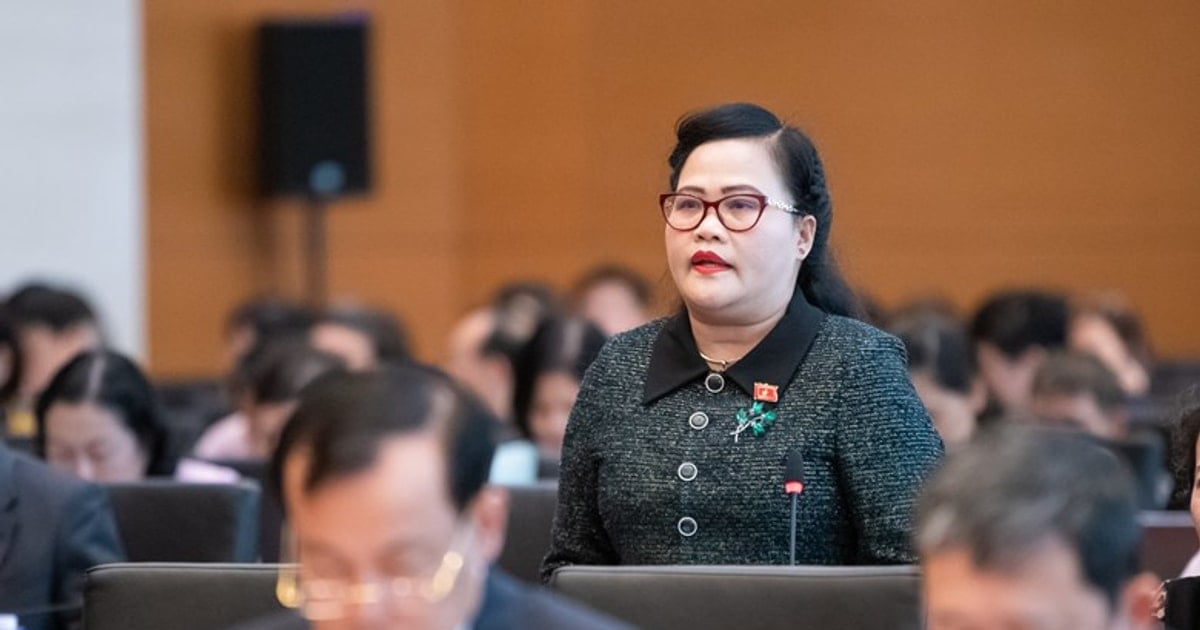



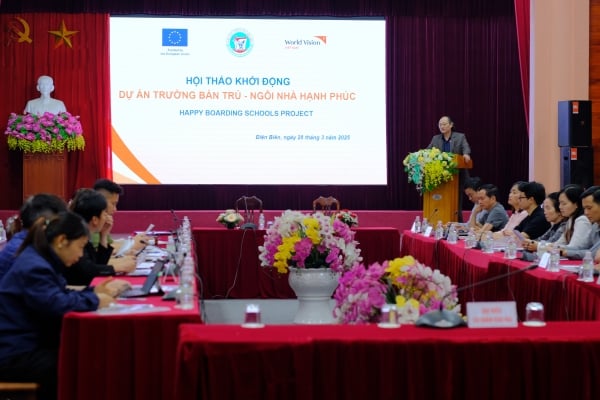
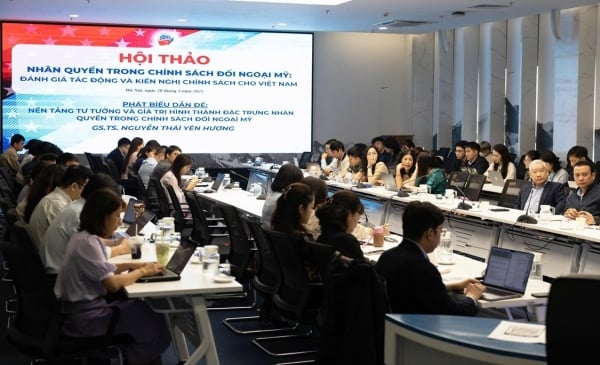





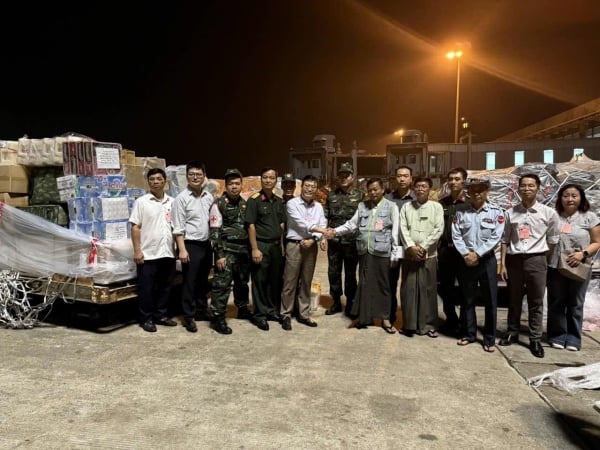


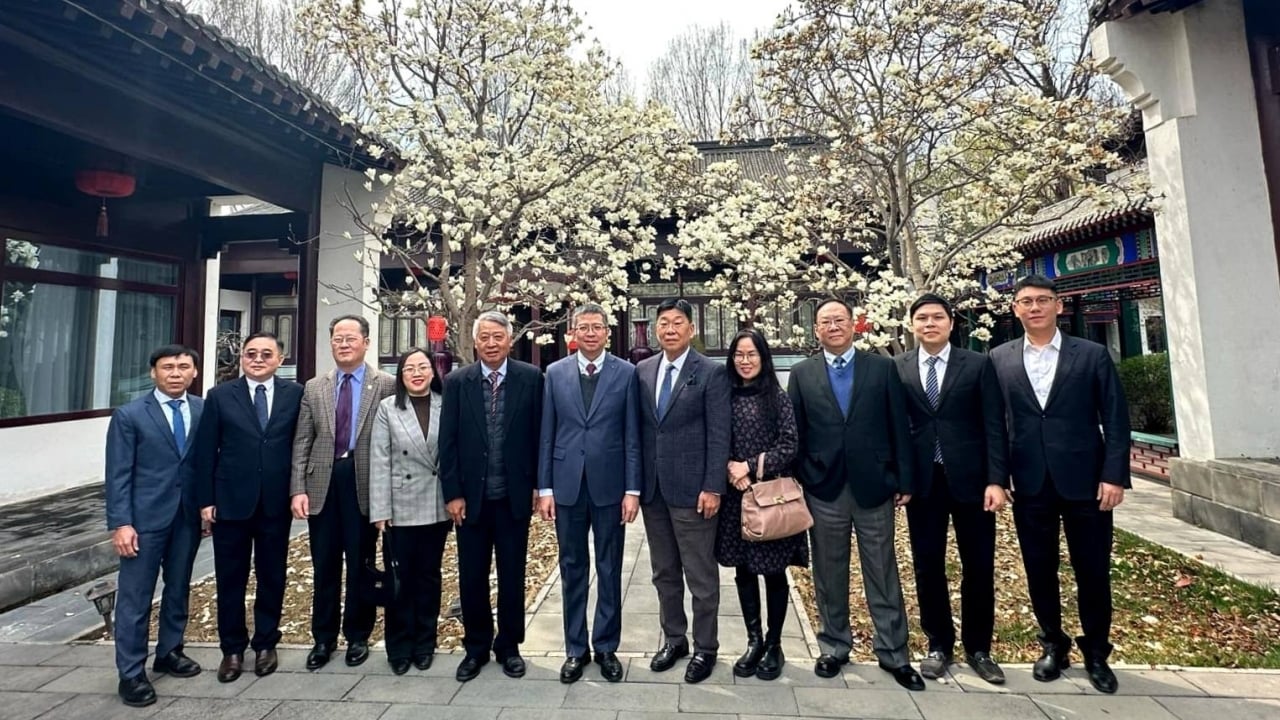

















































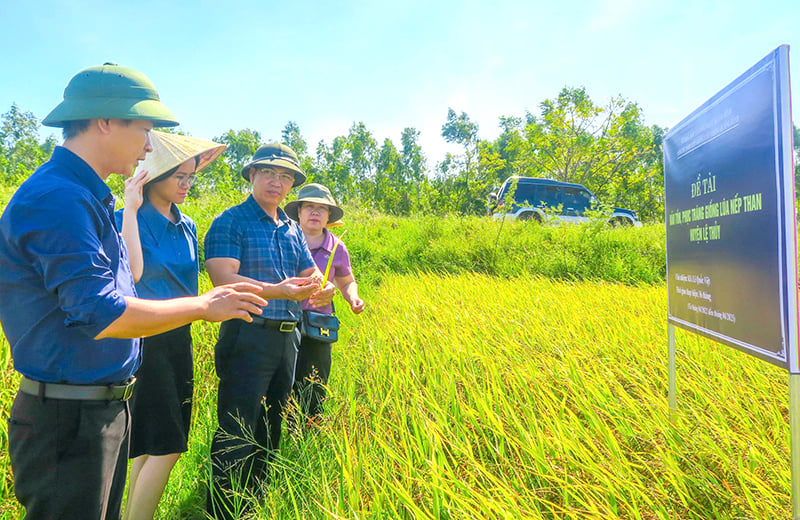


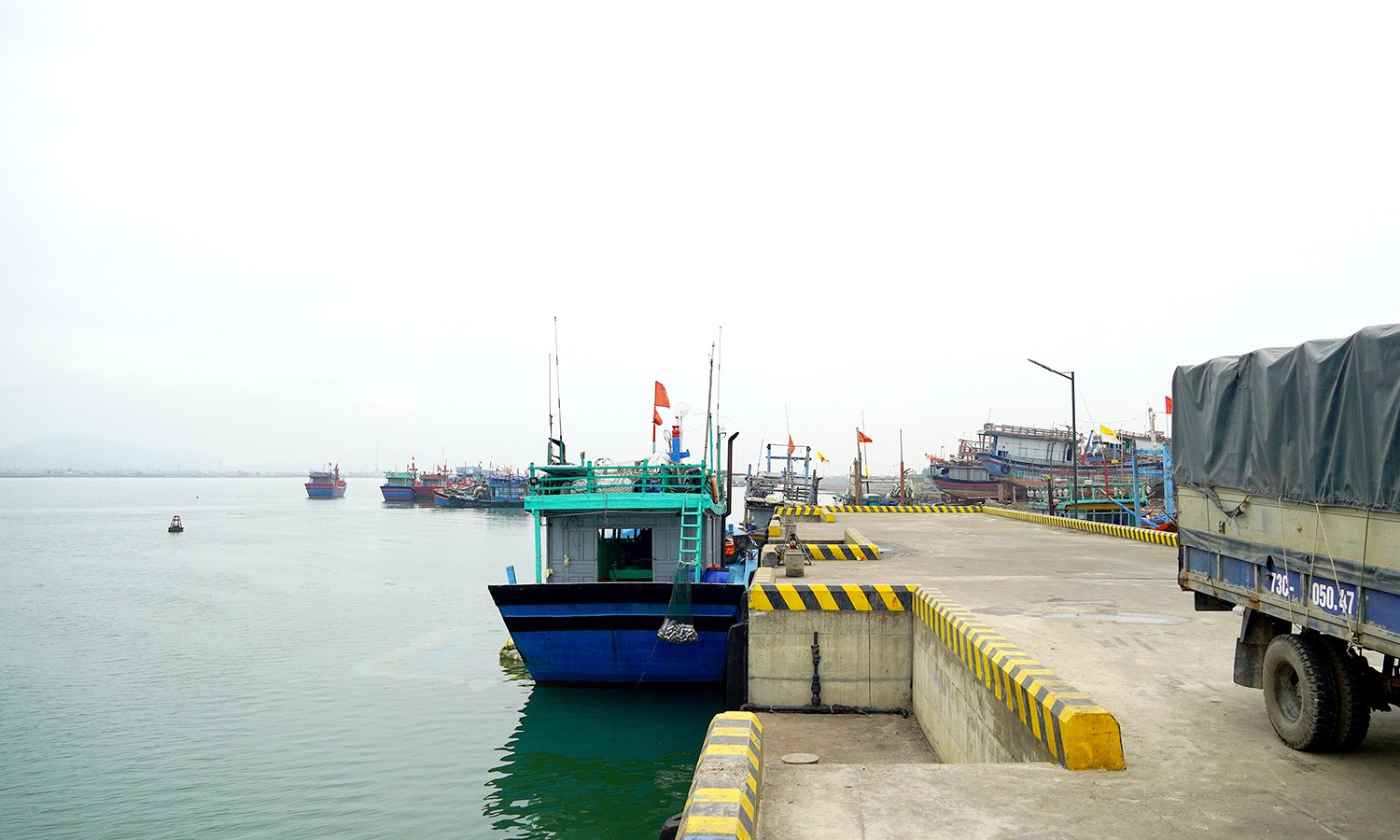
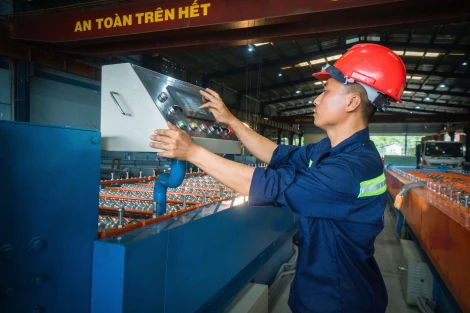
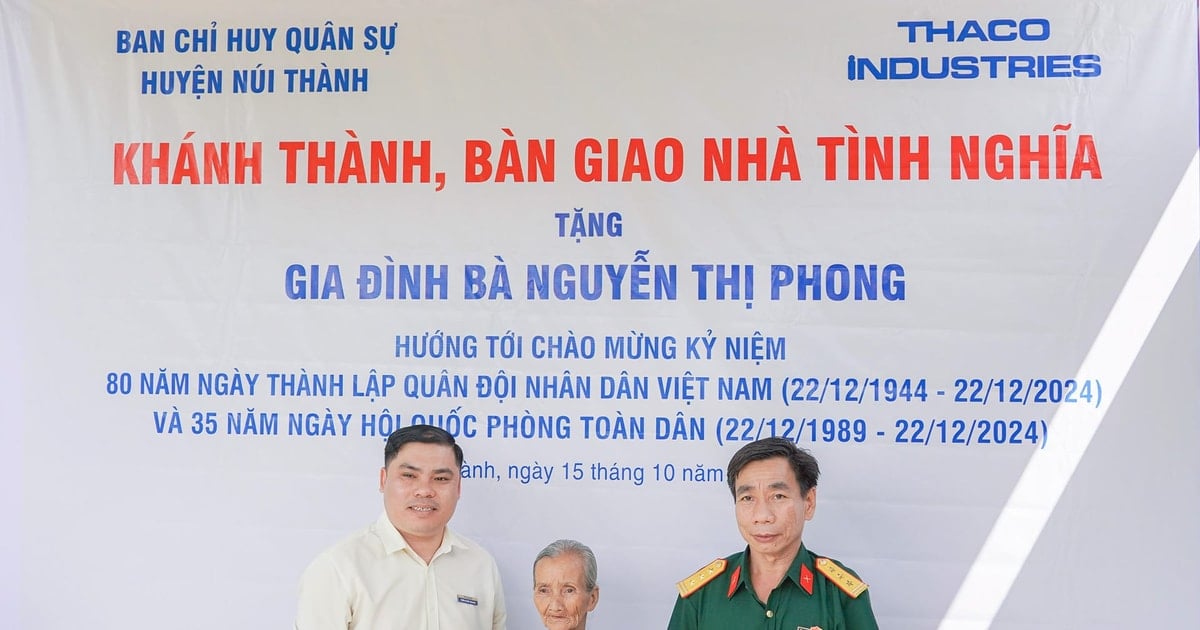













Comment (0)